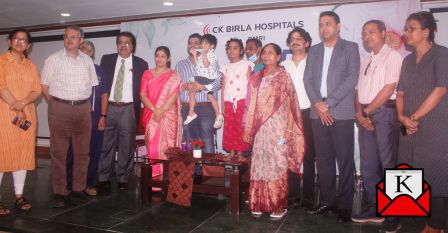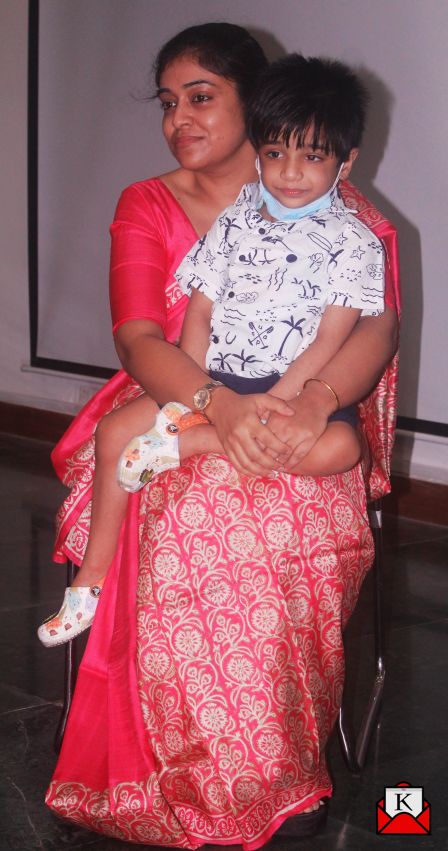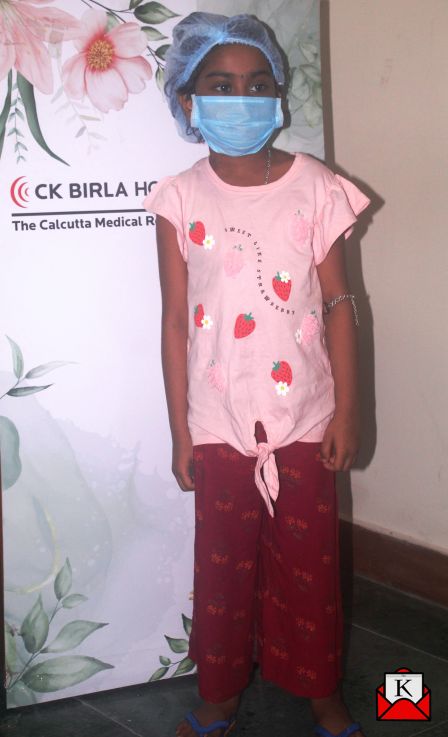Excellent Pediatric Renal Surgeries At CMRI


The youngest pediatric kidney transplant in Eastern India has been performed by the Department of Renal Sciences at The Calcutta Medical Research Institute (CMRI), a division of C.K. Birla Hospitals, marking a significant advancement in nephrology and renal transplantation.
Two young children with serious renal illnesses underwent these intricate surgeries, which is a historic accomplishment for the institution and demonstrates its dedication to improving pediatric care and transplantation medicine.
The team which performed the surgeries was led by the HOD of Renal Sciences, Dr. Pradip Chakrabarti (Transplant Surgeon) and Dr. Rajiv Sinha (Paediatric Nephrologist) along with Dr. Amlan Chakraborty (Urologist & Donor Surgeon), Dr. Satarupa Mukherjee (Paediatric intensivist), Dr. Subir Basuthakur (HOD – Anaesthesia)& Dr. Subhro Seal (Transplant Associate).
At the age of six months, Adidev, the infant son of an IT specialist and banker, was taken to see Dr. Rajiv Sinha in a critical condition at a pediatric hospital. After receiving conservative treatment, it was discovered that he had an end-stage renal illness due to a genetic abnormality caused by an HLA 1 Beta 2 mutation associated with autism. The only accessible therapy option for him at this newborn age was a transplant. He was optimized in several diverse areas over two years to get ready for a renal transplant.

The child was brought to CMRI for a pediatric transplant after receiving care for two years. After a multidisciplinary clinical clearance, the parents received counseling regarding the potential dangers, problems, and technical difficulties of undergoing a transplant, taking into account the patient’s current comorbidities. Following counseling, Adidev’s mother voluntarily stepped forward and expressed her desire to serve as the living donor. Aadidev underwent a kidney transplant procedure in February of 2024.
When Pabitra Kar, a lively 7-year-old, was taken to see Dr. Rajiv Sinha, her increased urine production and somewhat reduced appetite resulted in a diagnosis that could change her life. Deranged renal parameters and proteinuria were found during the evaluation, and Focal Segmental Glomerulo-Nephritis—which progresses to end-stage renal disease—was confirmed by kidney biopsy and genetic testing.
Pabitra got a technically difficult renal transplant at the end of February 2024. Due to limited abdominal space, the kidney had to be inserted intraperitoneally, and Pabitra’s common iliac vessels had to be anastomosed with the donor’s numerous repaired vessels. Another problem was maintaining her hemodynamics with reduced venous access after surgery. She nevertheless produced a sufficient amount of urine, and her renal parameters gradually improved.

This outstanding achievement demonstrates their ongoing commitment to healthcare innovation and excellence. The entire transplant team has set a new standard for pediatric renal care and kidney transplant, demonstrating their continued dedication to giving kids access to the best medical facilities available.
Priyanka Dutta
